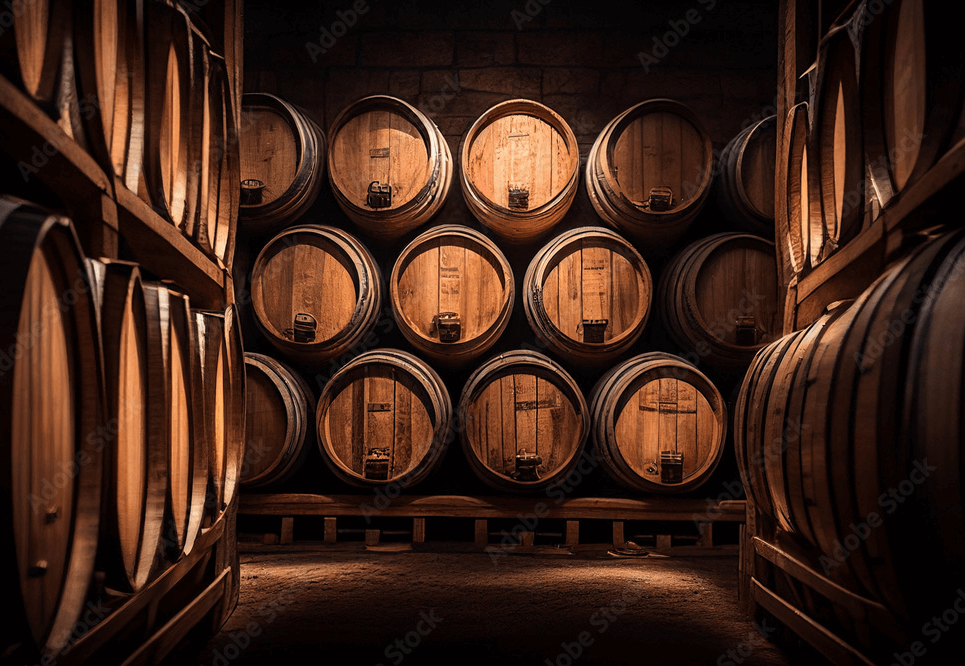Wine is a timeless product of art and science that has its roots deep in history. For thousands of years, human societies around the world have applied advanced techniques to refine wine production. In this article, we take a look at how technology has traditionally been integrated into wine production and how this is changing at a steady pace.
Technology and wine: A historical perspective
Wine production is a craft that has been practiced for centuries, but technological innovations have always played a role in its evolution. Even in ancient times, winemakers used technological innovations, such as irrigated vineyards in Ancient Egypt and Roman innovations in wine barrel construction and wine press design. These techniques and tools were highly advanced for their time and laid the foundation for modern wine production as we know it today.
The digital wine revolution: integrating modern technology
In modern times, technological developments have advanced the wine industry even further. Innovations in chemistry and biology have given winemakers a better understanding of the processes at work during fermentation, while mechanization and automation have contributed to more efficient harvesting and production methods. The rise of the digital age has brought a new set of tools and techniques, revolutionizing how the wine industry produces, distributes and communicates with consumers.
Technology and sustainability in the wine industry
At the same time, technology has also paved the way for more sustainable practices in the wine industry. By implementing precision farming and energy-efficient production methods, winemakers can reduce their carbon footprint while increasing the quality and consistency of their wines.
The Role of Technology in Viticulture
Accurate weather forecasts
Weather plays a vital role in viticulture. Sun, rain, wind, and temperature all directly affect the health of the grapes and ultimately the quality of the wine. Traditionally, vintners rely on local weather forecasts and their intuition to make decisions about when to plant, prune, treat and harvest.
Technology has changed this by providing hyperlocal and accurate weather forecasts. Advanced meteorological models allow winemakers to predict future weather conditions and adjust their viticultural practices accordingly. This helps them manage risks such as frost, drought and excessive rainfall, increasing the likelihood of a successful harvest.
Drones and satellites for vine inspection
Manual inspection of vineyards is time-consuming and labor-intensive. Technology has simplified this process through the use of drones and satellites. These flying devices can take high-quality aerial photographs and provide detailed information about the vineyard. Drones and satellites can also be equipped with sensors that detect specific wavelengths of light reflected from plants.
This information can be analyzed to assess vine health, water requirements, and grape maturity levels. This allows vintners to make decisions based on real-time and accurate information.
Sensor technology for soil and crop analysis
The quality of the soil has a great influence on the taste and quality of the wine. Traditionally, winemakers rely on soil analyses conducted once every few years. Technology has changed this process with the introduction of sensors that continuously collect data on soil moisture, pH, temperature, and nutrients.
This information can help winemakers optimize growing conditions and improve the quality of their wine. In addition, sensors can also collect data on the crops themselves, such as vine growth rate, photosynthesis activity, and grape maturity. This information can help winemakers determine the optimal harvest time, which is essential for producing high-quality wine.
In summary, technology has played a major role in improving the efficiency and precision of viticulture. The ability to collect and analyze real-time data allows winemakers to refine their practices and improve the quality of their wine. Clearly, these technologies will only become more important as the wine industry continues to evolve.
Innovation in winemaking: From vineyard to bottle
In the world of winemaking, the balance between tradition and technology is critical. While some processes closely follow historical methods, new technologies are bringing revolutionary changes that improve efficiency, strengthen quality control and help develop sustainable practices.
Automated harvesting and sorting machines: efficiency and quality
One of the first steps in the winemaking process is harvesting the grapes. In recent decades, technology has brought drastic changes in how this step is performed. Advanced harvesters can now service huge tracts of vineyard in a fraction of the time, increasing efficiency and reducing labor costs.
In addition to harvesting, automated sorting machines have also had a major impact. These machines sort grapes based on color, size, and even ripeness, ensuring even quality and removing unwanted elements such as twigs and leaves. This results in a purer final product and a better wine.
Innovations in fermentation technology: The science of wine
Fermentation is a crucial stage in winemaking, where sugars are converted to alcohol by yeasts. Technological innovations have led to better control of this process, with temperature-controlled stainless steel fermenters creating optimal conditions for the yeasts to work. In addition, innovations such as the development of specific yeast strains have increased. These strains are specifically designed to promote certain aromas and flavors, giving winemakers more control over the wine’s final flavor profile.
Monitoring Wine Quality with AI and ML: The Future of Winemaking
Perhaps one of the most exciting developments in the wine industry is the integration of artificial intelligence (AI) and machine learning (ML) into the production process. These technologies provide powerful tools for monitoring and analyzing wine quality. AI and ML can process a huge amount of data, from weather conditions to chemical analysis of the wine itself, and recognize patterns that are difficult for humans to detect. This allows winemakers to be proactive and detect any problems early, ensuring wine quality and consistency. By incorporating these modern technologies, winemakers are better equipped to produce exceptional wines while staying true to the traditions that characterize the wine industry.
The role of technology in the wine sales process
With the proliferation of technology in all aspects of our lives, it’s no surprise that the way wine is sold has also changed. From e-commerce and digital marketing to virtual tastings and blockchain authentication, technology is changing the game in exciting ways.
E-commerce and digital marketing in the wine industry
In the digital age, e-commerce has become a powerful sales channel for wine producers and retailers. Websites and mobile apps are making it easier than ever for consumers to discover, compare and purchase wines. In addition, online wine sales platforms offer wineries the opportunity to market their products internationally, expand their customer base and increase sales.
Digital marketing also plays a key role in the modern wine industry. From social media and email marketing to SEO and content marketing, digital strategies enable wineries to tell their brand story, build engagement with their audience and effectively promote their products.
Virtual wine tastings and tours
With the rise of virtual reality (VR) and augmented reality (AR) technologies, virtual wine tastings and tours are becoming increasingly popular. These experiences allow participants to explore vineyards and wineries, taste wines and learn about winemaking processes, all from the comfort of their own homes. In addition, they offer wineries a unique way to connect with customers and demonstrate their products, regardless of geographic constraints.
Blockchain in wine authentication
Fraud and adulteration are long-standing problems in the wine industry, especially with high-end and collectible wines. To address these issues, some wine companies are turning to blockchain technology. By giving each bottle of wine a unique, immutable digital identity, blockchain can help verify the wine’s authenticity, trace its origin and ensure its quality. This transparency can build consumer trust and increase the value of wine.
Future of technology in the wine industry
While considering the current state of technology in the wine industry, it is also fascinating to look ahead to the potential technological developments that could affect the future of wine production and sales. From genetic modification and climate modeling to advanced consumer interfaces, the future looks both exciting and challenging.
Genetic modification and genomic research
In response to the challenges of climate change and disease control, genetic modification and genomic research of grape varieties may play a vital role in the future of wine production. Genetic techniques can potentially be used to develop grape varieties that are more resistant to drought, heat and disease, allowing viticulture to persist in difficult conditions. Furthermore, genetic insights can contribute to the development of new grape varieties that offer unique flavor profiles and wine experiences.
Climate modeling and advanced weather forecasting
Climate change is a significant challenge for the wine industry. Advanced climate models and weather forecasting technologies can help winemakers meet this challenge by providing more accurate predictions of weather conditions and climate patterns. This allows winemakers to make more informed decisions about things like irrigation, harvest times and disease prevention.
Advanced consumer interfaces
In the field of wine sales, advanced consumer interfaces, including AI-powered recommendation systems and interactive AR wine labels, could be an exciting future development. These technologies can provide a personalized and engaging shopping experience, making it easier for consumers to find wines that fit their taste profile.
Sustainable technologies
Sustainability is a major theme throughout the wine industry. In the future, technologies aimed at increasing winery energy efficiency, reducing water use and promoting sustainable winemaking practices are likely to play a larger role.
These potential technological developments show how the combination of innovation and tradition can propel the wine industry into a future that is both sustainable and profitable.
The promise of technology in the wine industry
Clearly, technology is and will continue to play a huge role in the transformation of the wine industry. From the vine to the bottle to its final sale, technological innovations are revolutionizing every aspect of wine production and sales.
As we have seen, the integration of technology in the vineyard and winery has improved the precision and consistency of wine production, and has given it the ability to produce wines of superior quality. On the sales side, technology has opened up a world of opportunities for winemakers to market and sell their wines to a global audience. Moreover, with the rapid development of new technologies, we are on the eve of even more transformative changes in the wine industry.
Future innovations, such as genetic modification, advanced climate modeling and AI-powered consumer interfaces, have the potential to further redefine the way we produce and consume wine. But while we celebrate these technological advances, we must also not lose sight of the value of the traditions and craftsmanship at the heart of the wine industry. It is the delicate balance between old traditions and new technologies that makes the wine industry so unique and fascinating.
In this dynamic time of technological change, there are certainly challenges to overcome. But with these challenges also come opportunities. For winemakers willing to embrace technology and adapt to these changing times, the future promises to be both exciting and rewarding. At its core, the wine industry is a story of people – the winemakers who put their heart and soul into their craft, and the wine lovers who appreciate and enjoy the final product.
Technology is just a tool in this story, but it is a powerful tool that has the potential to take this old profession to new heights. And that’s a future we can all toast to.



